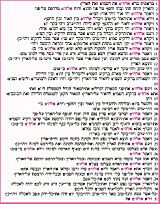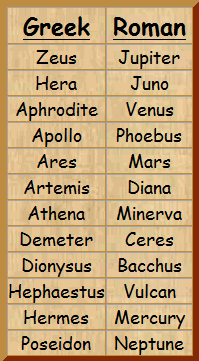
The root words and the root characters of
the Hebrew language
|

With the table on the previous page, you can click on any
of the Hebrew letters to the right and hear what they
sound like or how to pronounce them correctly. However
it is by no means necessary for you to learn proper pronunciation
in order to investigate the text we're exploring. It's highly doubtful
 anyone is going to ask you to read these words out loud and even if
we attempted it - the originators would probably laugh at our accents. Our
amazing journey is to find the true message behind them
- not speak the language.
anyone is going to ask you to read these words out loud and even if
we attempted it - the originators would probably laugh at our accents. Our
amazing journey is to find the true message behind them
- not speak the language.
You will soon discover ancient Hebrew is filled with words which
are constructed from a 'root' word - adding letters to the
'root' word to make new words and new definitions.
This is why the unique 'Root Character Dictionary' of the
Seek the Roots project isn't initially sorted alphabetically.
As you'll see, our dictionary is sorted first by the 'root'
word, followed by alphabetical.
As a great example, once you learn this two letter Hebrew word:

means God - there is no real need to pronounce the word itself
[click on it].
To comprehend the meaning, the proper pronunciation
of any particular word is interesting, but totally unnecessary to
get the actual message. But if you refer to the previous
table,
don't miss the fact this Hebrew word for God is composed of two
letters which originally meant Leader/Power (aleph) and
Shepherd/Teacher (lamed). The beauty of these ancient
words is in their basic simplicity.
However, if we now glance at the
first chapter of the Bible, that two-letter word isn't there.
While the above word clearly
means God in Hebrew, it is not the word highlighted purple
in that text.
If there is any word with multiple representations in this book, it is the
various words for God. The second chapter will introduce a third word
- 'yahweh' - but neither that word or the two letters above are in the
31 verses and over 350 words of the original
first chapter.
On the most influential page in the history of mankind
God is referenced 32 times, but the word initially used is the
Hebrew word 'Eloheem' - which is literally plural:
 . .
This particular word is normally written in English as Elohim or sometimes
Elohem, but if you click on it and listen to the proper
pronunciation it should probably be spelled
Eloheem. Trying to push a foreign word into our
alphabet (such as catsup or ketchup) often produces multiple spellings -
none of them actually "correct".
However, unlike the two character word for God shown above, this
word is more correctly defined as 'the gods'. Comparing the two words
explored here, the 'hey' character is added, normally indicating "the" or
attention (much more on that, later) and then the 'yood-mem' combination
indicating plural. [rule #1 reminder]
 To further illustrate this definition, it is not at all difficult to find references
within the English catechism of the faith to "Yahweh, our (particular)
Eloheem", putting two Hebrew words together. Theologians who study
ancient Hebrew use this fact to surmise the early Jews believed in many gods, just like the
Romans and the Greeks of that period.
We should not lose sight of the fact - during the time of these words, belief in
Zeus or the twelve Olympian gods was very real.
Most modern day Christians have no trouble with
the apparent plurality of this word, however - interpreting it as simply one of the
first obvious indications of the sacred Trinity. Thus, many of the current
To further illustrate this definition, it is not at all difficult to find references
within the English catechism of the faith to "Yahweh, our (particular)
Eloheem", putting two Hebrew words together. Theologians who study
ancient Hebrew use this fact to surmise the early Jews believed in many gods, just like the
Romans and the Greeks of that period.
We should not lose sight of the fact - during the time of these words, belief in
Zeus or the twelve Olympian gods was very real.
Most modern day Christians have no trouble with
the apparent plurality of this word, however - interpreting it as simply one of the
first obvious indications of the sacred Trinity. Thus, many of the current
 English translations use "Lord" as the translation for "Yahweh".
The plural intent of this ancient word
Eloheem
is validated when you consider this is a quite common rule in Hebrew composition.
Adding the
yood-
mem
combination to other Hebrew words is the precise equivalent to our
own addition of an 's' or
'es' to almost any English noun to make it plural. In Hebrew, the
"yood-
mem" added means plural.
It is as simple - and totally consistent - as that.
English translations use "Lord" as the translation for "Yahweh".
The plural intent of this ancient word
Eloheem
is validated when you consider this is a quite common rule in Hebrew composition.
Adding the
yood-
mem
combination to other Hebrew words is the precise equivalent to our
own addition of an 's' or
'es' to almost any English noun to make it plural. In Hebrew, the
"yood-
mem" added means plural.
It is as simple - and totally consistent - as that.
 Which brings us to the second rule - another simple one. Understanding Hebrew words
can be as easy as finding the root words, buried within them. There are a number of
add-on characters which alter the meanings of the words they're added to. The most
common ones are one character only, such as the 'hey' character we referenced within
the word 'Eloheem'. Others are two characters, but in each case we will show
you how the root characters identify their meaning.
Which brings us to the second rule - another simple one. Understanding Hebrew words
can be as easy as finding the root words, buried within them. There are a number of
add-on characters which alter the meanings of the words they're added to. The most
common ones are one character only, such as the 'hey' character we referenced within
the word 'Eloheem'. Others are two characters, but in each case we will show
you how the root characters identify their meaning.
If our purpose is to return to the thoughts, hearts, and minds during the time of this
indescribably pivotal chapter - sometimes by exposing common misconceptions - then it is
certainly appropriate to start at the beginning.
We understand this can be difficult to accept. When nearly everyone is
familiar with a misconception, everyone will be skeptical of anything different.
This is a natural reaction. However, we want you to understand -
everything we are about to share is easily verified, even by members of the clergy
if they simply view the details. Anyone fluent in Hebrew can confirm these
simple facts and Hebrew scholars are well aware of them. As we learn each
word and verse, the beautiful consistency of Hebrew will make any misconceptions apparent.
 Pronounced
'baresheet', the very first word
is commonly translated into English as; "In the beginning".
Unfortunately, there is a problem with that translation.
In the text above we referred to starting at "the" beginning.
As there is only one beginning, the term "the" is appropriate.
This is meaningful as it makes the simple word "the" quite important.
As with "the" Mona Lisa, it implies there is one, and only one.
Pronounced
'baresheet', the very first word
is commonly translated into English as; "In the beginning".
Unfortunately, there is a problem with that translation.
In the text above we referred to starting at "the" beginning.
As there is only one beginning, the term "the" is appropriate.
This is meaningful as it makes the simple word "the" quite important.
As with "the" Mona Lisa, it implies there is one, and only one.


There are two or three letters in the Hebrew alphabet with which you are going to get
extremely familiar. Picture a man with his arms thrown up - trying to get your attention -
and you have the picture-word roots of our English letter
'H'
 as well as the Hebrew letter amusingly known as a "
Hey!". In Hebrew
you will come to know it well because when it is added to the beginning of a root
word it means "the" - and that addition is very common. At the
end of a root word - or elsewhere as in 'Eloheem' - the letter "
Hey!" draws 'attention' within the word meaning.
This occurs about 50 times in the first chapter alone - but
there is no "the" - no
Hey!" in the Hebrew letters of
'baresheet'.
This word is a simply fantastic representative of
the 'root character' method. Its six letters contain quite a
background in this world where every letter had its own story. This
is the way that story unfolds: (Note, we are using a vertical stack as it
helps adjust to the unfamiliar right-to-left order);
as well as the Hebrew letter amusingly known as a "
Hey!". In Hebrew
you will come to know it well because when it is added to the beginning of a root
word it means "the" - and that addition is very common. At the
end of a root word - or elsewhere as in 'Eloheem' - the letter "
Hey!" draws 'attention' within the word meaning.
This occurs about 50 times in the first chapter alone - but
there is no "the" - no
Hey!" in the Hebrew letters of
'baresheet'.
This word is a simply fantastic representative of
the 'root character' method. Its six letters contain quite a
background in this world where every letter had its own story. This
is the way that story unfolds: (Note, we are using a vertical stack as it
helps adjust to the unfamiliar right-to-left order);
|
beyt
|

|
family - inside - dwelling - civilization
|
|
resh
|

|
beginning - first - initial
|
|
alef
|

|
power - leader - strength (force)
|
|
shin
|

|
aggression - sharp - attack (those)
|
|
yood
|

|
throw - motion - work - effort (then)
|
|
tav
|

|
monument - symbol - sign - mark
|
Each letter in this ancient alphabet carries a concept - a general idea
which we try to capture with our English words. Each character
deserves its own artistic representation - as none of our words even
existed at that time - but the general idea for each is shown
in the
'root character'
alphabetic table.
Using those concepts, one representation of the very
first word in the Bible might easily read;
civilization - beginning - strength, aggressive - effort - mark.
The actual historical meaning is buried within that phrase
or something very similar. However, we've already shown that the
phrase "in the beginning" is misleading. The beginning in
'baresheet'
is "a" beginning, not "the"
beginning. This may seem trivial, but it is a point
which causes dispute as there are groups (such as the Mormons) who believe there
are other worlds and other 'beginnings' - with more to come.
A raw translation of this word would probably be something like;
"during mankind's very beginning ...". We welcome
your thoughts.
The very first word in the Bible is also the original title for this chapter, as
the word Genesis was added by the Greeks centuries later.
When this chapter was written it was common practice to use the first
word as the title of the book. If we are going to
investigate the original, then "baresheet" or
 is really
the proper or original title.
"Genesis" was the Greek word for "coming into being" - and 200 years before
Jesus, 72 scholars (the Septuagint) translated the original Hebrew into Greek -
assigning their new title or nickname. "Genesis" was the very first
modification added to the original text, unintended by the Hebrew
writers. And assuming it actually belongs? - is the very first misconception. is really
the proper or original title.
"Genesis" was the Greek word for "coming into being" - and 200 years before
Jesus, 72 scholars (the Septuagint) translated the original Hebrew into Greek -
assigning their new title or nickname. "Genesis" was the very first
modification added to the original text, unintended by the Hebrew
writers. And assuming it actually belongs? - is the very first misconception.
So, using our 'root characters' is there an English phrase that would
be more fitting? Perhaps, but there is one particular phrase which is
quite popular. With an equivalent expression in many other languages as well, it
may normally be associated with fiction but there is actually nothing in the
phrase that denies reality. And as the first word, original heading for
these beautiful words - what a wonderful title.


Once Upon a Time ...
|
|